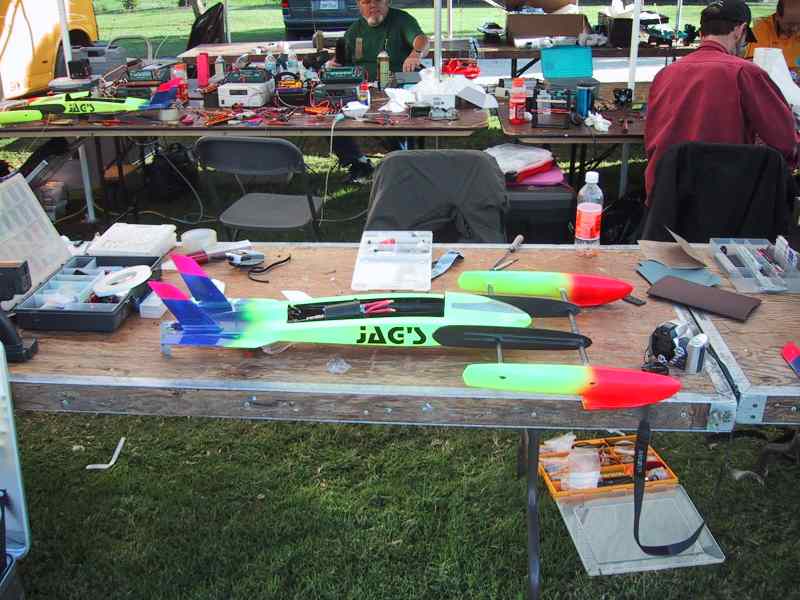I spoke with most of the record setters about this, and we were pretty much in agreement that there is no more power available this year compared to last year. The change from NiCads to NiMH cells was a huge step a couple years ago, but this year's cells are virtually identical to last year's. The important changes this year are, in no particular order:
* Better hull designs - less aero drag, more stable, less likely to blow off.
* More reliable ESCs - I don't know of any which burned up unless they got wet.
* Better hull setups - more/better wire drives, knife blade rudders, strut bearings.
* More confidence that we CAN go very very fast so more agressive setups were tried.
* Higher Kv motors - the 6-cell hydro record holder made a 79+ mph pass at what must have been well over 50,000 rpm on the water.
* More testing time prior to the event instead of bringing a brand new boat out - except for the JAGs team which usually runs some untested boats!
* The new timing equipment, which allowed the speed in mph to be called out immediately after each pass. This may
seem like a minor difference, but it allowed the racer to decide to abort his second pass if he didn't have a chance at a record. In years past the
time in seconds was called out, but the conversion is tough to do in your head while you're turning a 100 mph boat around in a small lake. Fewer "wasted" passes means more attempts to fine tune the setup and less chance of destroying the boat on a "wasted" pass.
Will the gains continue? In the smaller cell classes, particularly the non-riggers, yes. The 24- and 32-cell stick boats are running out of room, it takes a long time to get up to speed and to slow down. Longer lakes with no waves are needed - a real challenge. Will LiPo cells make a big difference? I suspect not at first, as the weight difference is not as large as many imagine, and with the current hulls weight is needed to keep the boats on the water, just like with land speed record cars. Trading aerodynamic down force for weight sacrifices speed. But I am confident that solutions will be found eventually. Safety is an issue - crash a boat at 120 mph and it may burn up before it can be retrieved.











